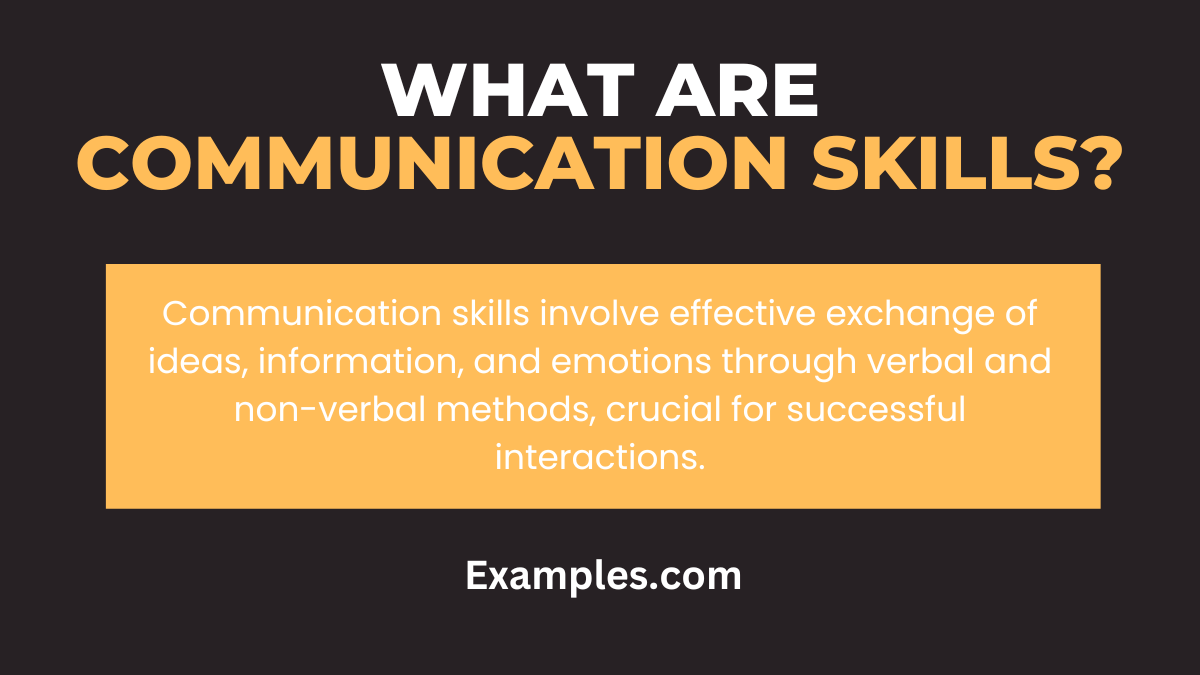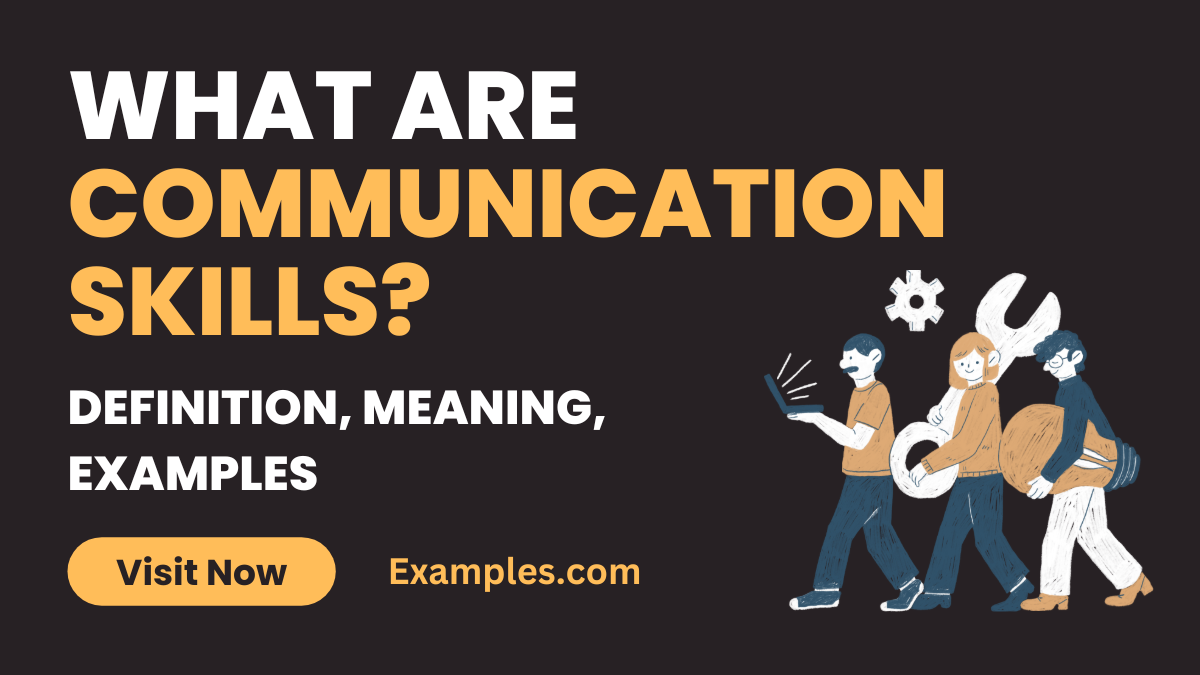What are Communication Skills?
In the realm of Mass Communication, understanding and mastering communication skills are crucial. This comprehensive guide delves into the definition and meaning of communication skills, offering insights into their significance in conveying messages effectively. Whether it’s for media broadcasting, interpersonal dialogue, or digital interaction, these skills are the cornerstone of effective transmission and reception of information. Learn how to enhance your communication abilities with practical examples and tips, and see how they apply in various aspects of mass communication.
What are Communication Skills? – Definition

Communication skills refer to the ability to convey information effectively and efficiently. These skills encompass a range of methods through which people express themselves clearly and confidently, ensuring their message is understood by others. This includes both verbal and non-verbal forms of communication.
Communication Skills for Students
For students, communication skills are essential for academic success and interpersonal development. These skills involve effectively engaging in group projects, clearly presenting ideas in class, and actively listening to instructors and peers. Mastery of both verbal and non-verbal communication helps students participate in discussions, understand complex concepts, and build strong relationships. Developing these skills early on aids in academic achievement and lays the foundation for future professional and personal interactions.
Communication Skills at Workplace
In the workplace, communication skills are vital for teamwork, problem-solving, and leadership. They encompass clear articulation of ideas, active listening to colleagues, and the ability to give and receive constructive feedback. Effective communication in a professional setting ensures efficient collaboration, minimizes misunderstandings, and enhances productivity. Whether in meetings, emails, or presentations, these skills are crucial for navigating the complexities of the modern work environment and advancing career prospects.
How to Improve Communication Skills
Improving communication skills involves a combination of practice, feedback, and self-awareness. Engaging in active listening, practicing empathy, and being concise and clear in conveying ideas are key strategies. Participating in public speaking clubs, seeking constructive criticism, and observing effective communicators can also aid in enhancement. Additionally, being aware of non-verbal cues and adapting communication styles to different audiences and situations are essential for becoming a more effective communicator.
Types of Communication Skills
Types of Communication skills include verbal, non-verbal, and written forms. Verbal skills involve speaking clearly and effectively, while non-verbal skills encompass body language and facial expressions. Written skills are about conveying messages through text in a clear, concise manner.
- Listening in Communication Skills
- Active Listening in Communication Skills
- Storytelling as Communication Skill
- Empathy in Communication Skills
- Presentation Skills in Communication
- Negotiation in Communication Skills
- Persuasion in Communication Skills
- Emotional Intelligence in Communication Skills
- Feedback in Communication Skills
- Conflict Resolution in Communication Skills
- Collaboration in Communication Skills
- Notes Taking in Communication Skills
Communication Skills of a Leader
Leadership communication Skills involves inspiring and guiding teams with clarity, vision, and empathy. Leaders must articulate goals effectively, listen actively, and adapt their messaging to diverse audiences, ensuring motivation and understanding within their teams.
Communication Skills of a Teacher
Teachers require excellent verbal and non-verbal Teacher communication skills to explain concepts clearly, engage students, provide feedback, and foster a positive learning environment. They must be adept at adapting their communication style to suit various learning needs.
Communication Skills in Psychology
In psychology, communication skills are pivotal for understanding client emotions and conveying empathy. Psychologists need to listen attentively, express thoughts clearly, and use language that supports and respects the client’s perspective and confidentiality.
Effective Communication Skills
Effective communication Skills entails the ability to convey messages clearly, listen actively, understand non-verbal cues, and respond appropriately. It’s about sharing information in a way that is easily understood and encourages open dialogue.
Informal Communication Skills
Informal communication skills involve casual, spontaneous interactions that build rapport and personal connections. These skills include friendly conversational abilities, active listening, and the adaptability to various social contexts.
Communication Skills for High School
High school communication skills encompass the ability to engage in classroom discussions, work collaboratively on projects, and present ideas confidently. These skills are crucial for academic success and social development during these formative years.
Methods of Communication Skills
Effective communication methods involve active listening, clear articulation, empathy, and feedback. Utilizing visual aids, engaging storytelling, and adapting to the audience’s needs also enhance communication effectiveness.
Tips for Communication Skills
To improve communication skills tips, practice active listening, maintain eye contact, be concise, and use positive body language. Always tailor your message to your audience, seek feedback, and continuously refine your approach based on responses and interactions.
In conclusion, communication skills are essential tools for effective interaction and understanding in various aspects of life. From expressing oneself clearly to actively listening and understanding others, these skills enhance personal and professional relationships. Mastering communication not only involves speaking but also non-verbal cues and empathy. Continuously developing these skills can lead to more meaningful interactions and successful collaborations.



